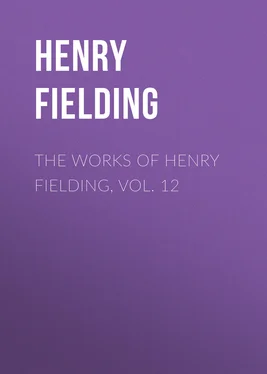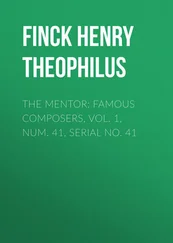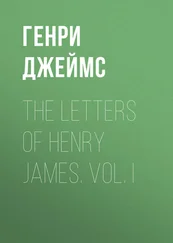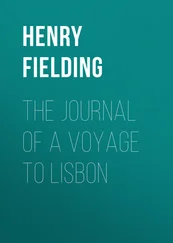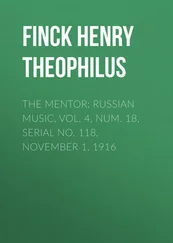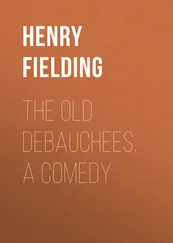Henry Fielding - The Works of Henry Fielding, vol. 12
Здесь есть возможность читать онлайн «Henry Fielding - The Works of Henry Fielding, vol. 12» — ознакомительный отрывок электронной книги совершенно бесплатно, а после прочтения отрывка купить полную версию. В некоторых случаях можно слушать аудио, скачать через торрент в формате fb2 и присутствует краткое содержание. Жанр: foreign_prose, Юмористические книги, foreign_antique, foreign_dramaturgy, на английском языке. Описание произведения, (предисловие) а так же отзывы посетителей доступны на портале библиотеки ЛибКат.
- Название:The Works of Henry Fielding, vol. 12
- Автор:
- Жанр:
- Год:неизвестен
- ISBN:нет данных
- Рейтинг книги:4 / 5. Голосов: 1
-
Избранное:Добавить в избранное
- Отзывы:
-
Ваша оценка:
- 80
- 1
- 2
- 3
- 4
- 5
The Works of Henry Fielding, vol. 12: краткое содержание, описание и аннотация
Предлагаем к чтению аннотацию, описание, краткое содержание или предисловие (зависит от того, что написал сам автор книги «The Works of Henry Fielding, vol. 12»). Если вы не нашли необходимую информацию о книге — напишите в комментариях, мы постараемся отыскать её.
The Works of Henry Fielding, vol. 12 — читать онлайн ознакомительный отрывок
Ниже представлен текст книги, разбитый по страницам. Система сохранения места последней прочитанной страницы, позволяет с удобством читать онлайн бесплатно книгу «The Works of Henry Fielding, vol. 12», без необходимости каждый раз заново искать на чём Вы остановились. Поставьте закладку, и сможете в любой момент перейти на страницу, на которой закончили чтение.
Интервал:
Закладка:
This learned critick and his followers were led into so great an error by that surreptitious and piratical copy which stole last year into the world; with what injustice and prejudice to our author will be acknowledged, I hope, by every one who shall happily peruse this genuine and original copy. Nor can I help remarking, to the great praise of our author, that, however imperfect the former was, even that faint resemblance of the true Tom Thumb contained sufficient beauties to give it a run of upwards of forty nights to the politest audiences. But, notwithstanding that applause which it received from all the best judges, it was as severely censured by some few bad ones, and, I believe rather maliciously than ignorantly, reported to have been intended a burlesque on the loftiest parts of tragedy, and designed to banish what we generally call fine things from the stage.
Now, if I can set my country right in an affair of this importance, I shall lightly esteem any labour which it may cost. And this I the rather undertake, first, as it is indeed in some measure incumbent on me to vindicate myself from that surreptitious copy before mentioned, published by some ill-meaning people under my name; secondly, as knowing myself more capable of doing justice to our author than any other man, as I have given myself more pains to arrive at a thorough understanding of this little piece, having for ten years together read nothing else; in which time, I think, I may modestly presume, with the help of my English dictionary, to comprehend all the meanings of every word in it.
But should any error of my pen awaken Clariss. Bentleium to enlighten the world with his annotations on our author, I shall not think that the least reward or happiness arising to me from these my endeavours.
I shall waive at present what hath caused such feuds in the learned world, whether this piece was originally written by Shakspeare, though certainly that, were it true, must add a considerable share to its merit, especially with such who are so generous as to buy and commend what they never read, from an implicit faith in the author only: a faith which our age abounds in as much as it can be called deficient in any other.
Let it suffice, that THE TRAGEDY OF TRAGEDIES; or, THE LIFE AND DEATH OF TOM THUMB, was written in the reign of queen Elizabeth. Nor can the objection made by Mr D – , that the tragedy must then have been antecedent to the history, have any weight, when we consider that, though the HISTORY OF TOM THUMB, printed by and for Edward M – r, at the Looking-glass on London-bridge, be of a later date, still must we suppose this history to have been transcribed from some other, unless we suppose the writer thereof to be inspired: a gift very faintly contended for by the writers of our age. As to this history's not bearing the stamp of second, third, or fourth edition, I see but little in that objection; editions being very uncertain lights to judge of books by; and perhaps Mr M – r may have joined twenty editions in one, as Mr C – l hath ere now divided one into twenty.
Nor doth the other argument, drawn from the little care our author hath taken to keep up to the letter of this history, carry any greater force. Are there not instances of plays wherein the history is so perverted, that we can know the heroes whom they celebrate by no other marks than their names? nay, do we not find the same character placed by different poets in such different lights, that we can discover not the least sameness, or even likeness, in the features? The Sophonisba of Mairet and of Lee is a tender, passionate, amorous mistress of Massinissa: Corneille and Mr Thomson give her no other passion but the love of her country, and make her as cool in her affection to Massinissa as to Syphax. In the two latter she resembles the character of queen Elizabeth; in the two former she is the picture of Mary queen of Scotland. In short, the one Sophonisba is as different from the other as the Brutus of Voltaire is from the Marius, jun., of Otway, or as the Minerva is from the Venus of the ancients.
Let us now proceed to a regular examination of the tragedy before us, in which I shall treat separately of the Fable, the Moral, the Characters, the Sentiments, and the Diction. And first of the
Fable; which I take to be the most simple imaginable; and, to use the words of an eminent author, "one, regular, and uniform, not charged with a multiplicity of incidents, and yet affording several revolutions of fortune, by which the passions may be excited, varied, and driven to their full tumult of emotion." – Nor is the action of this tragedy less great than uniform. The spring of all is the love of Tom Thumb for Huncamunca; which caused the quarrel between their majesties in the first act; the passion of Lord Grizzle in the second; the rebellion, fall of Lord Grizzle and Glumdalca, devouring of Tom Thumb by the cow, and that bloody catastrophe, in the third.
Nor is the Moral of this excellent tragedy less noble than the Fable; it teaches these two instructive lessons, viz., that human happiness is exceeding transient; and that death is the certain end of all men: the former whereof is inculcated by the fatal end of Tom Thumb; the latter, by that of all the other personages.
The Characters are, I think, sufficiently described in the dramatis personae; and I believe we shall find few plays where greater care is taken to maintain them throughout, and to preserve in every speech that characteristical mark which distinguishes them from each other. "But (says Mr D – ) how well doth the character of Tom Thumb, whom we must call the hero of this tragedy, if it hath any hero, agree with the precepts of Aristotle, who defineth 'Tragedy to be the imitation of a short but perfect action, containing a just greatness in itself'? &c. What greatness can be in a fellow whom history relateth to have been no higher than a span?" This gentleman seemeth to think, with serjeant Kite, that the greatness of a man's soul is in proportion to that of his body; the contrary of which is affirmed by our English physiognomical writers. Besides, if I understand Aristotle right, he speaketh only of the greatness of the action, and not of the person.
As for the Sentiments and the Diction, which now only remain to be spoken to; I thought I could afford them no stronger justification than by producing parallel passages out of the best of our English writers. Whether this sameness of thought and expression, which I have quoted from them, proceeded from an agreement in their way of thinking, or whether they have borrowed from our author, I leave the reader to determine. I shall adventure to affirm this of the Sentiments of our author, that they are generally the most familiar which I have ever met with, and at the same time delivered with the highest dignity of phrase; which brings me to speak of his diction. Here I shall only beg one postulatum, viz., That the greatest perfection of the language of a tragedy is, that it is not to be understood; which granted (as I think it must be), it will necessarily follow that the only way to avoid this is by being too high or too low for the understanding, which will comprehend everything within its reach. Those two extremities of stile Mr Dryden illustrates by the familiar image of two inns, which I shall term the aerial and the subterrestrial.
Horace goes farther, and sheweth when it is proper to call at one of these inns, and when at the other:
Telephus et Peleus, cum pauper et exul uterque,
Projicit ampullas et sesquipedalia verba.
That he approveth of the sesquipedalia verba is plain; for, had not Telephus and Peleus used this sort of diction in prosperity, they could not have dropt it in adversity. The aerial inn, therefore (says Horace), is proper only to be frequented by princes and other great men in the highest affluence of fortune; the subterrestrial is appointed for the entertainment of the poorer sort of people only, whom Horace advises,
Читать дальшеИнтервал:
Закладка:
Похожие книги на «The Works of Henry Fielding, vol. 12»
Представляем Вашему вниманию похожие книги на «The Works of Henry Fielding, vol. 12» списком для выбора. Мы отобрали схожую по названию и смыслу литературу в надежде предоставить читателям больше вариантов отыскать новые, интересные, ещё непрочитанные произведения.
Обсуждение, отзывы о книге «The Works of Henry Fielding, vol. 12» и просто собственные мнения читателей. Оставьте ваши комментарии, напишите, что Вы думаете о произведении, его смысле или главных героях. Укажите что конкретно понравилось, а что нет, и почему Вы так считаете.
